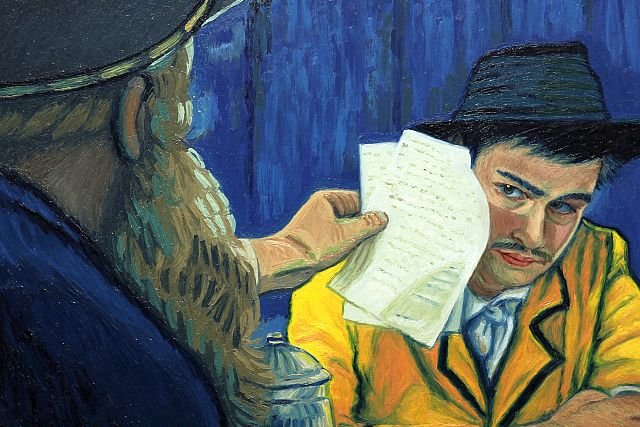The subject of my motivation analyses is Armand Roulin from the movie Loving Vincent. The movie follows the protagonist Armand Roulin, a character who has no significant relationship with the late Vincent van Gogh. His motivation began as an obligation to his father, Joseph Roulin, when he lectured him the importance of family and loss and convinced him to go on a journey to deliver a letter Vincent had written for his brother Theo two years prior to killing himself.
 It wasn't until Armand arrived in Paris and met with Pére Tanguy, Vincent's paint supplier, when he was informed Theo had died shortly after Vincent's death. Pére had mentioned a Dr. Gachet and told Armand to find him if he wanted to find an answer.
It wasn't until Armand arrived in Paris and met with Pére Tanguy, Vincent's paint supplier, when he was informed Theo had died shortly after Vincent's death. Pére had mentioned a Dr. Gachet and told Armand to find him if he wanted to find an answer.
 Armand only knew Vincent as a sick, crazy man. However, he later became drawn to the mystery of his death. During his journey, he comes across many characters who have strong opinions on the late Vincent van Gogh.
Armand only knew Vincent as a sick, crazy man. However, he later became drawn to the mystery of his death. During his journey, he comes across many characters who have strong opinions on the late Vincent van Gogh.
What had started as an obligation took shape into curiosity. His motivation took direction when he became invested in finding an answer to the tragedy of Vincent's death.
"I don't see the point in delivering a dead man's letter."
—
"Wouldn't you want it if it was me?"

"Maybe you should ask him why he did it."

What had started as an obligation took shape into curiosity. His motivation took direction when he became invested in finding an answer to the tragedy of Vincent's death.

Comments
Post a Comment